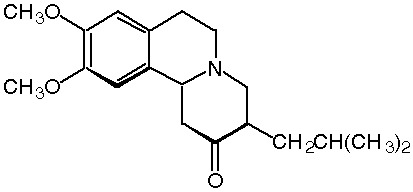NEW ORLEANS -- New data show the investigational therapy tetrabenazine may be a safe and viable treatment option for patients with hyperkinetic movement disorders who have a prior history of depression, according to research presented this week at the 9th International Congress of Parkinson's Disease and Movement Disorders in New Orleans.
"Depression is common among people with Huntington's Disease," said Joseph Jankovic, M.D., Professor of Neurology and Director, Parkinson's Disease Center and Movement Disorders Clinic, Baylor College of Medicine, Houston, and lead study investigator. "These new data show that a prior history of depression should not preclude patients from being treated with tetrabenazine."
Previous studies have demonstrated that tetrabenazine, a dopamine depleter that works by selectively blocking vesicular monoamine transporter 2 (VMAT2), improves the symptoms associated with a number of hyperkinetic movement disorders. Clinical study investigators believe serotonin and nonadrenaline depletion are likely mechanisms of tetrabenazine-induced depression, which has been reported to occur in approximately 15 percent of patients treated with the drug.
Study Design and Results
One objective of the retrospective analysis was to provide data on the potential relationship between pre-existing depression and subsequent use of tetrabenazine. A total of 518 medical charts were reviewed for men and women aged 3-87 years treated with tetrabenazine at Baylor College of Medicine. The indications for treatment included Huntington's Disease and other choreas (31.3%), tardive dyskinesia (30.1%), dystonia (27.4%), Tourette syndrome (18.3%) and myoclonus (3.7%).
Responses were assessed using a previously published response scale. Prior to initiation of tetrabenazine treatment, 272 patients (52.5 %) had a documented history of depression and/or prior treatment with antidepressant therapy. Adverse events were captured and coded according to their relationship to the drug, as well as an existing relationship to any pre-existing concomitant conditions, such as depression.
Results of the retrospective analysis showed that the percentage of patients who discontinued treatment was not statistically different in patients with a prior history of depression (3.3%) and those with no prior history of depression (2.8%).
The majority of treated patients experienced marked improvement in their movement disorders. The mean duration of treatment was 29.7 months and the mean dosage was 62 mg/day. During tetrabenazine treatment, 50 patients (18.4%) had an exacerbation of their depression or required a change in antidepressant (15.4%) and 28 patients (11.4%) experienced depression for the first time. A total of 16 patients (3.1%) discontinued treatment due to an adverse event of depression.
Most adverse events were dose-related, temporary and rapidly reversed. The most frequent adverse events included drowsiness or fatigue (27.4%), parkinsonism (11.8%), depression (9.5%), and akathisia (8.9%). No orthostatic hypotension or new onset tardive dyskinesia was reported. In this large cohort, the incidence of depression as an adverse event was lower than in previously published studies.
Hyperkinetic movement disorders, including Huntington's Disease, other choreas and tardive dyskinesia, are characterized by abnormal involuntary movements.
Tetrabenazine
Tetrabenazine is available in some European markets and Australia as XENAZINE(R) and in Canada as NITOMAN(R) for the treatment of hyperkinetic movement disorders. Although currently an investigational drug in the U.S., tetrabenazine can have a profound effect on chorea, with many patients demonstrating marked to good improvement. Side effects can include drowsiness, insomnia, akathisia and depression.
Prestwick Pharmaceuticals
Prestwick Pharmaceuticals, Inc. is an emerging specialty pharmaceutical company that focuses on treatments for CNS disorders. The company has multiple product candidates in clinical development for Huntington's Disease, Parkinson's disease and schizophrenia.
Prestwick recently announced positive Phase III results of the investigational drug tetrabenazine for chorea associated with Huntington's Disease. The company anticipates filing a New Drug Application (NDA) for tetrabenazine with the U.S. Food and Drug Administration (FDA) in the near future. Prestwick was granted both fast track and orphan designation by the FDA for tetrabenazine as a therapy for chorea associated with Huntington's Disease.
COPYRIGHT 2005 Business Wire
COPYRIGHT 2005 Gale Group



